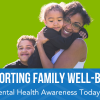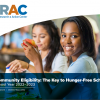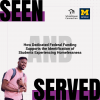Bright Spots in Los Angeles: School Districts Leading the Charge to Solve the Literacy Crisis
Report
Apr 16, 2025
Despite substantial financial investments in education, millions of California students continue to struggle with reading on grade level, threatening their academic success and future opportunities.



